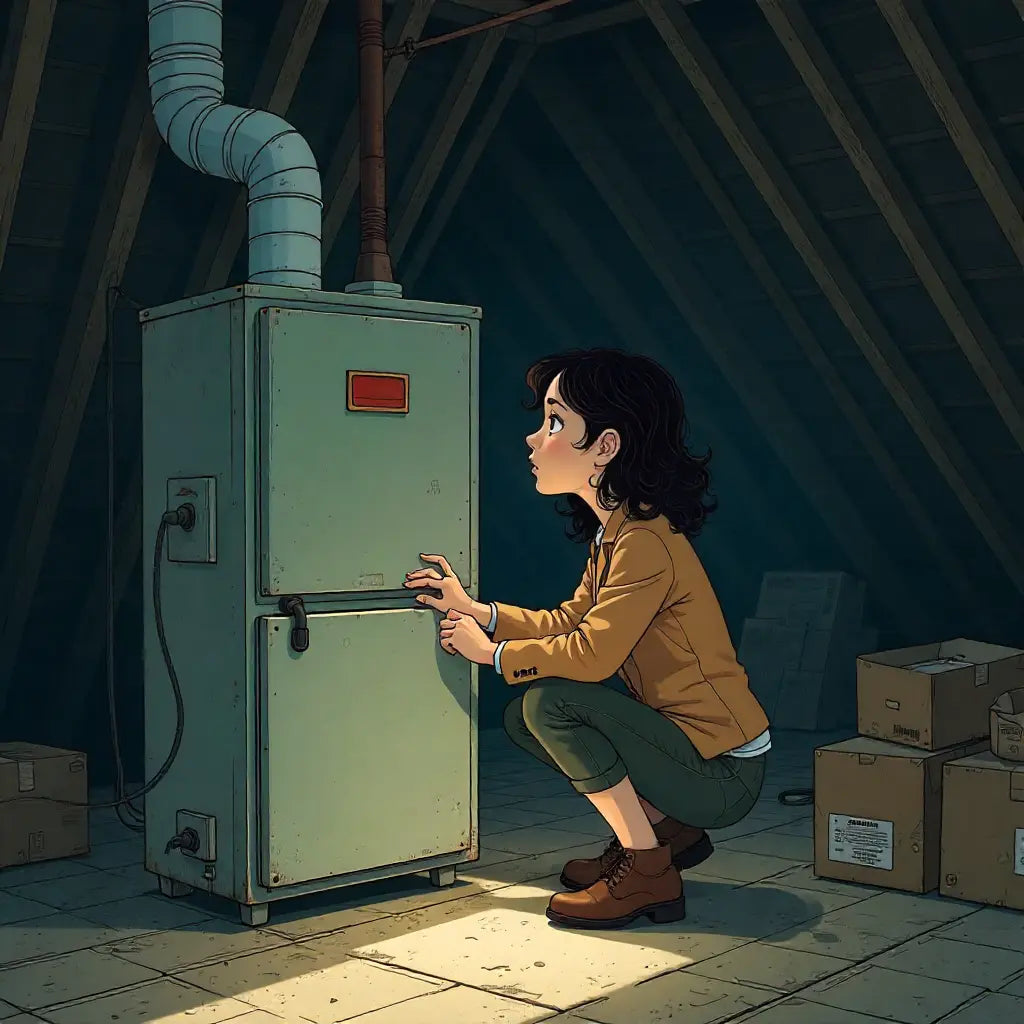Hey there, it’s your girl Savvy Mavi 💁
Let’s talk about a hot topic—literally. When it comes to heating your home, the electric vs. gas furnace debate is one that deserves your full attention. Both systems come with perks, quirks, and some serious dollar signs if you make the wrong call.
If you’re shopping around like at this furnace collection, you might be asking:
“Do I go for the simple plug-and-play of electric, or the long-term value of natural gas?”
Don’t worry, I’ve got you. We're about to explore everything—installation, energy use, upfront cost, safety, and maintenance—so you can make a decision that fits both your lifestyle and your wallet.
What’s the Difference Anyway?
Electric furnaces and gas furnaces both heat your home, but how they do it—and what it means for you—is where the real story begins.
-
Electric Furnaces: Use electric resistance coils to generate heat. Think giant hair dryer.
-
Gas Furnaces: Burn natural gas (or propane) to heat air and push it through your home.
Electric = simpler setup, cleaner operation.
Gas = more complex, but usually cheaper to run long-term.
You can learn more about how each works from this Energy.gov HVAC Basics guide.
💸 Initial Cost & Installation: What’s It Gonna Cost Me?
Electric Furnace Installation
-
Lower upfront cost (yay!)
-
No gas lines needed
-
Easier for DIYers or quick swaps
Gas Furnace Installation
-
Higher upfront cost (booo)
-
Requires a gas line and venting
-
May need permits, depending on your city or state
According to HomeAdvisor, electric furnace installation averages between $1,600–$3,500, while gas furnace installs can range from $2,000 to $6,000+.
So yeah, gas costs more to get in the door—but don’t count it out just yet.
🔌⚠️ Energy Efficiency & Utility Bills
Electric Furnaces
-
Typically 100% efficient (no wasted heat)
-
Electricity prices vary by state and season
-
Might cost more monthly to operate, especially in cold climates
Gas Furnaces
-
Usually around 80–98% efficiency (look for high-AFUE models)
-
Natural gas is often cheaper than electricity per BTU
-
Big win in colder states or for larger homes
Check your local utility rates on the EIA Electricity Data Browser to get real numbers for your zip code.
If you're in a mild or southern climate, electric might be more than enough. But if your winters get real, gas tends to win out in long-term cost savings.
🔧 Maintenance & Repairs: Which One’s the Diva?
Electric Furnace
-
Fewer moving parts
-
Less frequent repairs
-
Long lifespan (often 20–30 years!)
Gas Furnace
-
Needs regular checks (especially for gas leaks and carbon monoxide)
-
May require more repairs over time
-
Lifespan usually around 15–20 years
Safety tip? If you go with gas, invest in a reliable carbon monoxide detector and schedule annual inspections.
According to the CDC, over 400 people die from unintentional CO poisoning annually in the U.S. That’s not something to play around with.
🌎 Sustainability & Environmental Impact
-
Electric is cleaner at the point of use. No combustion, no emissions in your home.
-
Gas produces carbon emissions, though high-efficiency models are better.
-
BUT… electric systems are only as green as your local power grid.
If your utility company gets most of its juice from coal, your “clean” electric furnace might not be so eco after all. Check with your local utility provider to see if they offer renewable energy programs.
Fun fact: Heat pumps are another great electric alternative that’s even more efficient than standard electric furnaces in many climates. The Department of Energy has a helpful guide if you’re curious.
🧠 So... Which One Should You Choose?
Let’s break it down by lifestyle types, shall we?
You might prefer Electric if:
-
You live in a mild climate
-
You want lower upfront costs
-
You’re in a smaller space or condo
-
You’re all about eco-conscious living
Gas could be a better fit if:
-
You live where winters are brutal
-
You already have gas service
-
You want the lowest long-term heating cost
-
You're heating a large home or multi-zone system
Still undecided? Use a reputable BTU calculator to find out what size you need first, then compare electric vs. gas options in your BTU range.
🔄 Switching from One to the Other?
It’s possible—but not always simple. Going from electric to gas (or vice versa) might require:
-
New ductwork
-
Running gas lines or upgrading electrical panels
-
Updated permits and inspections
Make sure you get quotes from licensed HVAC professionals and compare apples to apples.
Final Thoughts from Mavi ☕
Whether you're team ⚡Electric or team 🔥Gas, what really matters is picking a system that fits your climate, home size, and monthly budget without skimping on safety or comfort.
Need help browsing actual models? Start your search here with The Furnace Outlet. Their selection of gas and electric furnaces is 🔥 and they’ve got options for all types of homes and budgets.
Curious about furnace filters? Visit my guide: The Furnace Filter Deep Dive.
Let your heating choice be one that works for you, not against you. You’ve got this—and if you don’t, I’m always here with tips, tricks, and some solid emoji game. 😎
- Savvy Mavi OUT!







